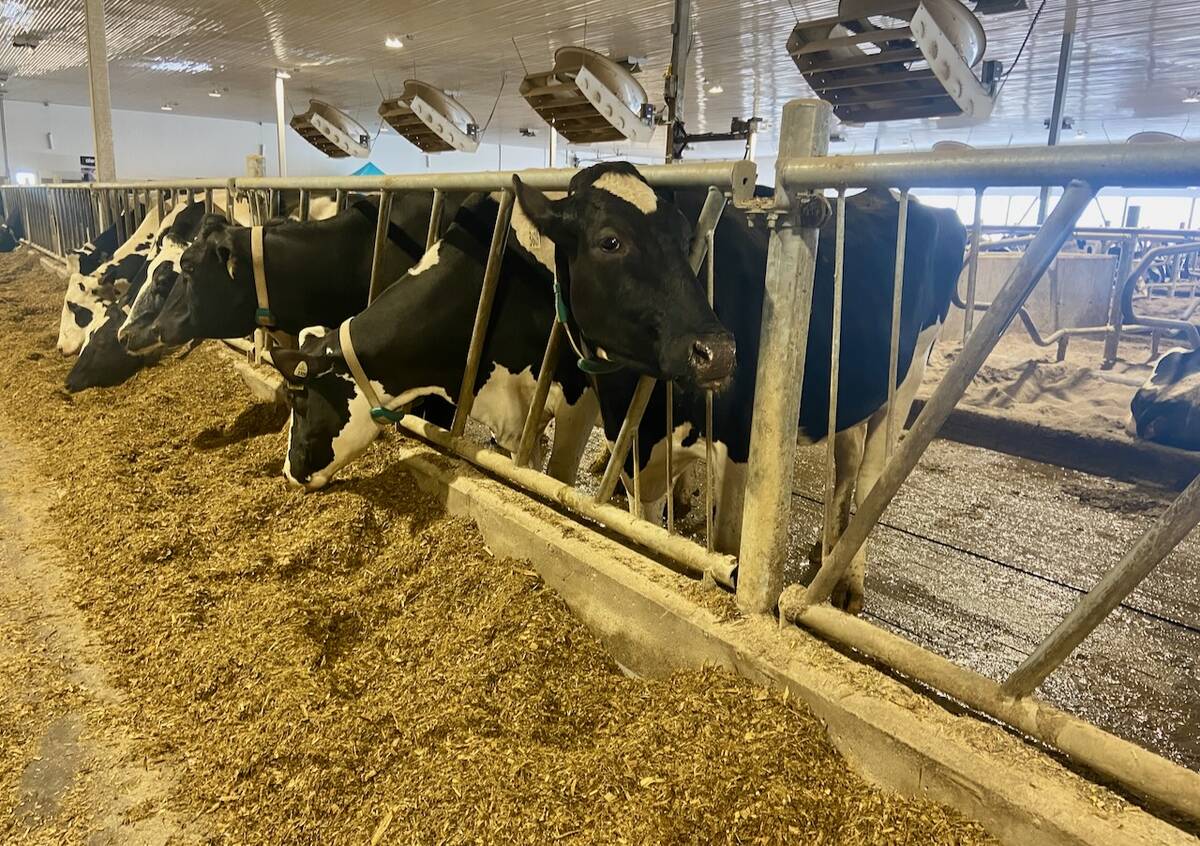Lucky Lake has seen its share of bad luck in recent years.
This south-central Saskatchewan village has ridden a rollercoaster over the last decade, first enjoying prosperity linked to rising potato and hog production, then crashing as these businesses foundered and charges of government mismanagement in potatoes arose.
But the community believes its fortunes are about to turn around.
Bill Sheppard, long-time reeve of the Rural Municipality of Canaan that borders the village, said there are several positive signs.
“What pulled us together was our anger and we decided not to let the government walk all over us,” he said. “We banded together to fight.”
Read Also

U.S. farm group supports supply management
U.S. grassroots farm advocacy group pushing new agriculture legislation that would move towards supply management like Canada has for dairy industry
A group of local and Alberta investors hopes to create a potato flaking plant, relaunch a fresh pack plant and storage facility and reactivate 4,000 acres of potato production in the coming growing season. That all hinges on the outcome of lawsuits surrounding the provincial government’s now-
defunct Spudco and on buying
assets from the receiver, said
Sheppard, who hoped for an
announcement soon.
Also, a hog operation at nearby Birsay is expected to begin restocking its barns this month.
Oil and gas exploration east of Lucky Lake also holds the promise of lease revenues for farmers and increased regional economic activity.
The new West Central Road and Rail producer car shipping facilities at Beechy and Lucky Lake gave farmers access to transportation outlets after local elevators closed.
Sheppard said new developments will generate part- and full-time jobs and several economic spinoffs for the close-knit rural municipality of 190 and village of 350, located about 15 kilometres west of Lake Diefenbaker.
This time, he insists, there will be no government involvement. Local farmers will be partial owners and a Calgary company will manage the operations, he said.
Irrigation development is not part of the business plan, but Sheppard
hopes that sector will be stimulated to serve the demand created by the potato plant.
If all goes as planned, it will be a welcome reversal of fortune for Lucky Lake, Sheppard said.
He admitted businesses are suffering, houses are vacant and many young people have moved away after losing their jobs.
Successive dry years slashed crop yields and the hog operation at Birsay shut down. In 2004, the Pak-Wel-Agristar fresh pack plant went out of business.
The region has long suffered from unfulfilled promise.
The damming of the nearby South Saskatchewan River and creation of Lake Diefenbaker promised tourism and recreation opportunities but they were most successful on the east side of the lake.
In one way, the lake increased Lucky Lake’s isolation by cutting it off from Regina and Moose Jaw when ice stops the ferry at Riverhurst.
Through it all, the village has fought to remain self-sufficient.
Lucky Lake boasts a variety of businesses from plumbing to groceries, a post office and a Kindergarten to Grade 12 school.
A modern 16-room motel accommodates visitors such as the American bird hunters who flock here each fall. A fish plant changed ownership but continues to employ many.
Churches and a Level 4 health care centre, clinic and doctor service the community, and there is curling and skating at the local rink.
Bitterness toward government over what residents consider underhanded, misleading dealings with Spudco pervades any conversation with residents about their past, present and future.
The community is now waging war with the local health district to keep its ambulance service.
“Out in the countryside, it’s cheaper to buy toe tags than run an ambulance,” Sheppard said wryly.
The provincial government is also trying to move the highways maintenance depot.
“We can’t depend on anyone from across the (frozen) lake,” he said.
“We need to be serviced from the local area.”
Over the past 20 years area farms have become fewer but larger, producing pulses, canola, specialty crops, potatoes and cereals on dry and irrigated acres.
David and Lois Jessiman own Midwest Agro, a farm service and supply company on the outskirts of Lucky Lake.
Their home and head office is in the village. The company has eight locations and 30 workers along Lake Diefenbaker, including new sites in Beechy and Elrose.
The expansion was based on servicing a strong farming community. David Jessiman said there is potential for more irrigation but that will depend on federal and provincial government money.
“If these big projects don’t happen, there is still a base of customers at all our locations that keep us going.”
Jessiman said many area projects have come up short over the years, but feels it is still worth investing in the region.
“The community is still there to support anything willing to come in.”
RM and village administrator Edna Laturnus called the area a community of survivors dedicated to the area.
“It’s been difficult but we’ve been able to hang together as a community,” she said.














